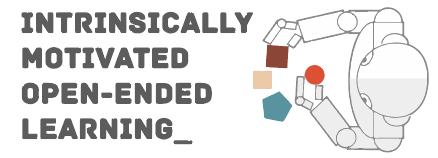 |
| Fei Xu |
| speaker |
Bio
Fei Xu (Chinese: 徐绯; pinyin: Xú Fēi) is an American developmental psychologist and cognitive scientist who is currently a professor of psychology and the director of the Berkeley Early Learning Lab at UC Berkeley. Her research focuses on cognitive and language development, from infancy to middle childhood.After graduating from the High School Affiliated to Renmin University of China, she moved to the U.S. and attended Smith College, graduating in 1991 with a B.A. in Cognitive Science.[2] She earned her Ph.D. in Cognitive Science from M.I.T. in 1995.
She began her career as a postdoctoral fellow at the University of Pennsylvania, Rutgers University, and M.I.T. under Alan M. Leslie. She joined Northeastern University as an assistant professor in 1997. In 2003, she moved to Vancouver to be an associate professor at the University of British Columbia (UBC) and was awarded the Canada Research Chair in Developmental Cognitive Science. She was a visiting professor at UC Berkeley in 2007–2008, then returned to UBC. In 2009, she joined the UC Berkeley Department of Psychology as a Professor, where she is also the director of the school’s Early Learning Lab.
She worked with several prominent developmental and cognitive psychologists early in her career. She worked with Susan Carey for her Ph.D. research on object individuation, sortal concepts, and early word learning. She worked with Elizabeth Spelke as a postdoctoral fellow, focusing on prelinguistic infants’ representation of numbers. She also worked with Alan Leslie at Rutgers University on infants’ object concept.
Beginning in the 2010s, Xu advocated for a new approach to the study of cognitive development, namely rational constructivism. She argued that human infants begin life with a set of proto-conceptual primitives such as object, number, and agent, and as young learners acquire language. These initial representations are transformed into a format that is compatible with language and propositional thought. She suggested that three types of learning mechanisms explain both belief revision and genuine conceptual change: (1) Language and symbol learning; (2) Bayesian inductive learning; and (3) Constructive thinking. She also suggests that infants and young children are active learners, and cognitive agency is part and parcel of development. In addition, she has explored the implications of rational constructivism for philosophy of mind and epistemology.
She has been honoured with several awards, including the Stanton Prize from the Society for Philosophy and Psychology (2006), the Guggenheim Fellowship (2018), and the Fellowship of the Society of Experimental Psychologists (2020). She is also a fellow of the Association for Psychological Science and is a member of the editorial board for Psychological Science.
Google scholar page • Personal webpage
Talk
Research from the last couple of decades has demonstrated that human infants and young children have powerful learning mechanisms that support learning across domains. Here I will report studies on (1) how language, specifically words that refer to object kinds, may facilitate the development of representations of kind concepts and (2) how in free play, young children are able to figure out second-order rules that contribute to their developing conceptual system.
